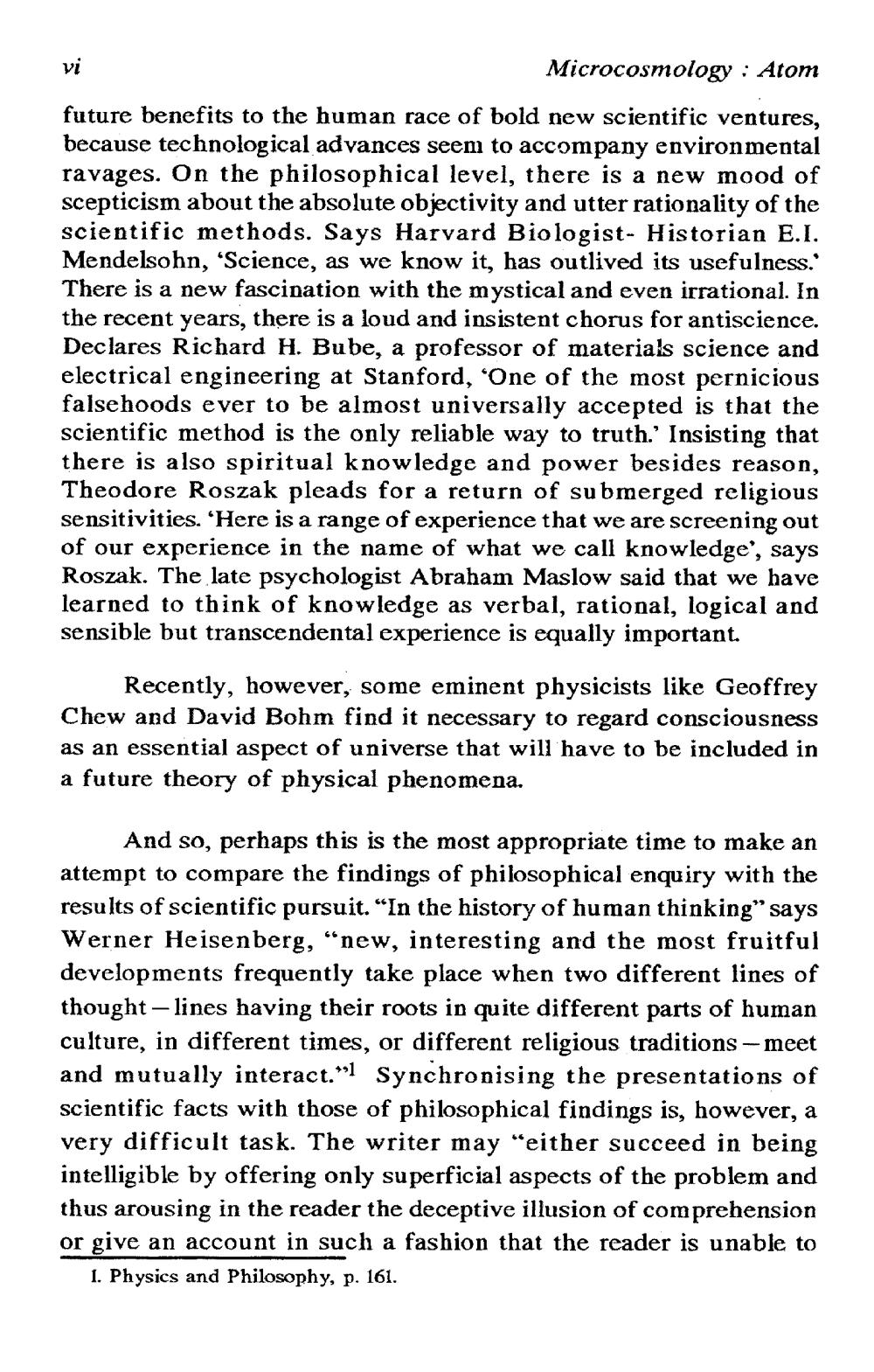Book Title: Microcosmology Atom in Jain Philosophy and Modern Science Author(s): Jethalal S Zaveri, Mahendramuni Publisher: Jain Vishva Bharati View full book textPage 8
________________ vi Microcosmology : Atom future benefits to the human race of bold new scientific ventures, because technological advances seem to accompany environmental ravages. On the philosophical level, there is a new mood of scepticism about the absolute objectivity and utter rationality of the scientific methods. Says Harvard Biologist- Historian E.I. Mendelsohn, 'Science, as we know it, has outlived its usefulness.' There is a new fascination with the mystical and even irrational. In the recent years, there is a loud and insistent chorus for antiscience. Declares Richard H. Bube, a professor of materials science and electrical engineering at Stanford, 'One of the most pernicious falsehoods ever to be almost universally accepted is that the scientific method is the only reliable way to truth.' Insisting that there is also spiritual knowledge and power besides reason, Theodore Roszak pleads for a return of submerged religious sensitivities. Here is a range of experience that we are screening out of our experience in the name of what we call knowledge', says Roszak. The late psychologist Abraham Maslow said that we have learned to think of knowledge as verbal, rational, logical and sensible but transcendental experience is equally important. Recently, however, some eminent physicists like Geoffrey Chew and David Bohm find it necessary to regard consciousness as an essential aspect of universe that will have to be included in a future theory of physical phenomena. And so, perhaps this is the most appropriate time to make an attempt to compare the findings of philosophical enquiry with the results of scientific pursuit. “In the history of human thinking” says Werner Heisenberg, “new, interesting and the most fruitful developments frequently take place when two different lines of thought – lines having their roots in quite different parts of human culture, in different times, or different religious traditions - meet and mutually interact."1 Synchronising the presentations of scientific facts with those of philosophical findings is, however, a very difficult task. The writer may “either succeed in being intelligible by offering only superficial aspects of the problem and thus arousing in the reader the deceptive illusion of comprehension or give an account in such a fashion that the reader is unable to 1. Physics and Philosophy, p. 161.Page Navigation
1 ... 6 7 8 9 10 11 12 13 14 15 16 17 18 19 20 21 22 23 24 25 26 27 28 29 30 31 32 33 34 35 36 37 38 39 40 41 42 43 44 45 46 47 48 49 50 51 52 53 54 55 56 57 58 59 60 61 62 63 64 65 66 67 68 69 70 71 72 73 74 75 76 77 78 79 80 81 82 ... 266
